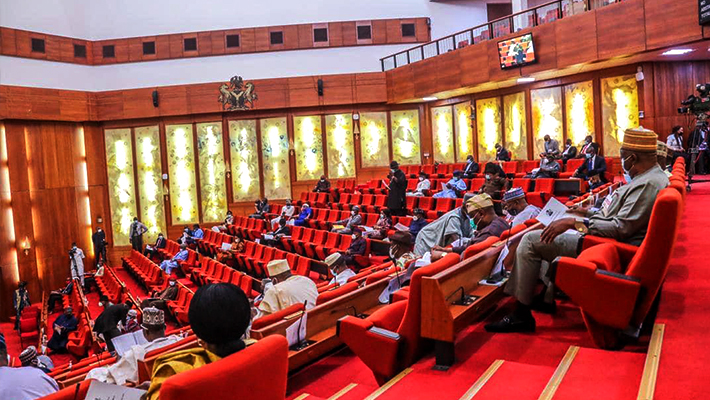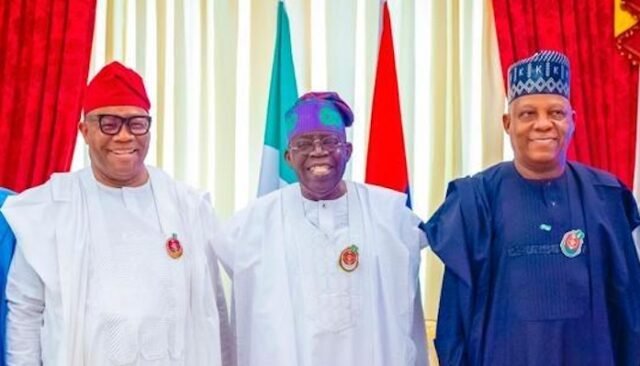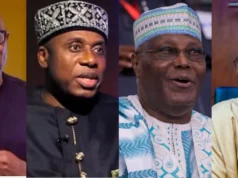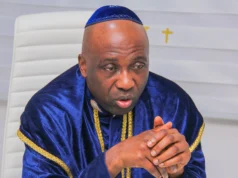Social media has been buzzing with reactions over the Federal governments plan to raise salaries of politicians in public offices including the president, Vice resident and senate president despite its high cost of governance in relation to its GDP per capita.
The Revenue Mobilisation Allocation and Fiscal Commission(RMAFC) chairman, Mohammed Shehu claimed that despite an increase in responsibility and financial difficulties, the present pay structure has not changed since 2008.
He said: “You cannot pay the President of Nigeria N1.5m monthly with a population of over 200 million people and expect it to be taken seriously.

“You pay either a CBN governor or the DG ten times more than you pay the President. That is just not right. Or you pay him [the head of an agency] twenty times higher than the Attorney-General of the Federation. That is absolutely not right.”
Following this, research by our correspondent revealed that Nigeria has one of the most expensive cost of governance including politicians salaries, allowances, trips among others, given its economic state and revenue.
Also Recommended: Nigerian leaders selfish, insensitive move to increase Tinubu, Shettima, Akpabio, politicians’ salaries
According to reports, Nigeria spends around 70% of its revenue on governance cost including; salaries, allowances, overhead expenses, political appointees, vehicles among others.

The statement by the RMAFC boss has stirred controversy and questions around how much suffering and hardship will be plaguing the common or average Nigerian if the politicians who have access to funds are complaining of increased financial difficulties.
The question remains if the sufferings of average Nigerians are a joke to the government.
The outrage comes even more as the move to raise salaries comes only few years after Senator Shehu Sani, from Kaduna and a member of President Buhari’s All Progressives Congress, blew the whistle. Shehu Sani in 2018 had revealed that the salary of Senators is 750,000 naira per month plus allowances of 13.5 million naira per month, for a total package of 14.25 million naira per month at the time.

Additionally, a 2015 report obtained by business day also revealed that Nigerian law makers were ranked as the 9th highest paid globally. One is forced to wonder if this is feasible given that Nigeria does not rank even 10th on the list of developed countries of the world but only ranks as a third world developing country.
More so, the country has a long list of accumulated debt from different sources which will justify a reduction in these cost of governance rather than an increment.
Similarly, a 2013 report by Vanguard states that there are 109 Senators and 360 members of the House of Representatives so in terms of payment by result, the Nigerian lawmakers do not deserve such high pay and surely does not perform their duties to warrant such hyper inflated pay.

The report further stated that, ‘No one deserves that much money while ordinary people are scavenging to make ends meet. Nigeria has got multitude of deprivation; high infant mortality rate, maternal mortality rate, malnutrition, inadequate health care and transportation and lack of electricity outage, high crime rates, high number of young people not in education, employment or in training. So why is some of these excesses going to improve the lives of Nigerians”.
Here’s a list of top 5 developing countries who’s larger part of revenue get eaten up by governance overhead with Nigeria ranking as #1 according to world bank and IMF analysis.
- Nigeria: Around 70 percent of revenue into governance overhead and debt servicing.
2. South Sudan : High recurrent spending, bloated government structure.
3. Venezuela: Massive political expenditure despite weak economy.
4. Zimbabwe: High proportion of scarce revenue spent on politics and bureaucracy.
5. Angola: Governance spending skewed towards political elites
Join Our Social Media Channels:
WhatsApp: NaijaEyes
Facebook: NaijaEyes
Twitter: NaijaEyes
Instagram: NaijaEyes
TikTok: NaijaEyes





